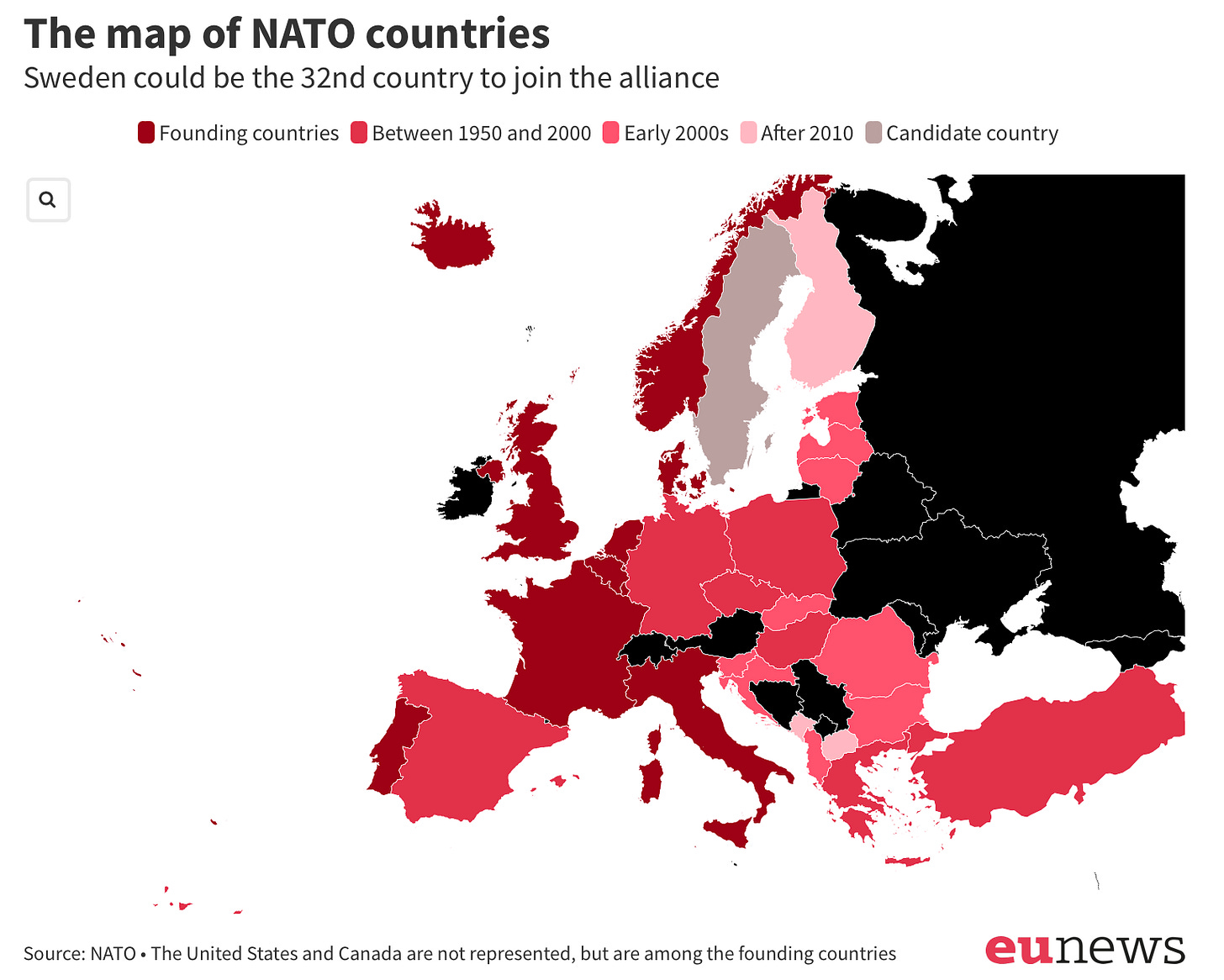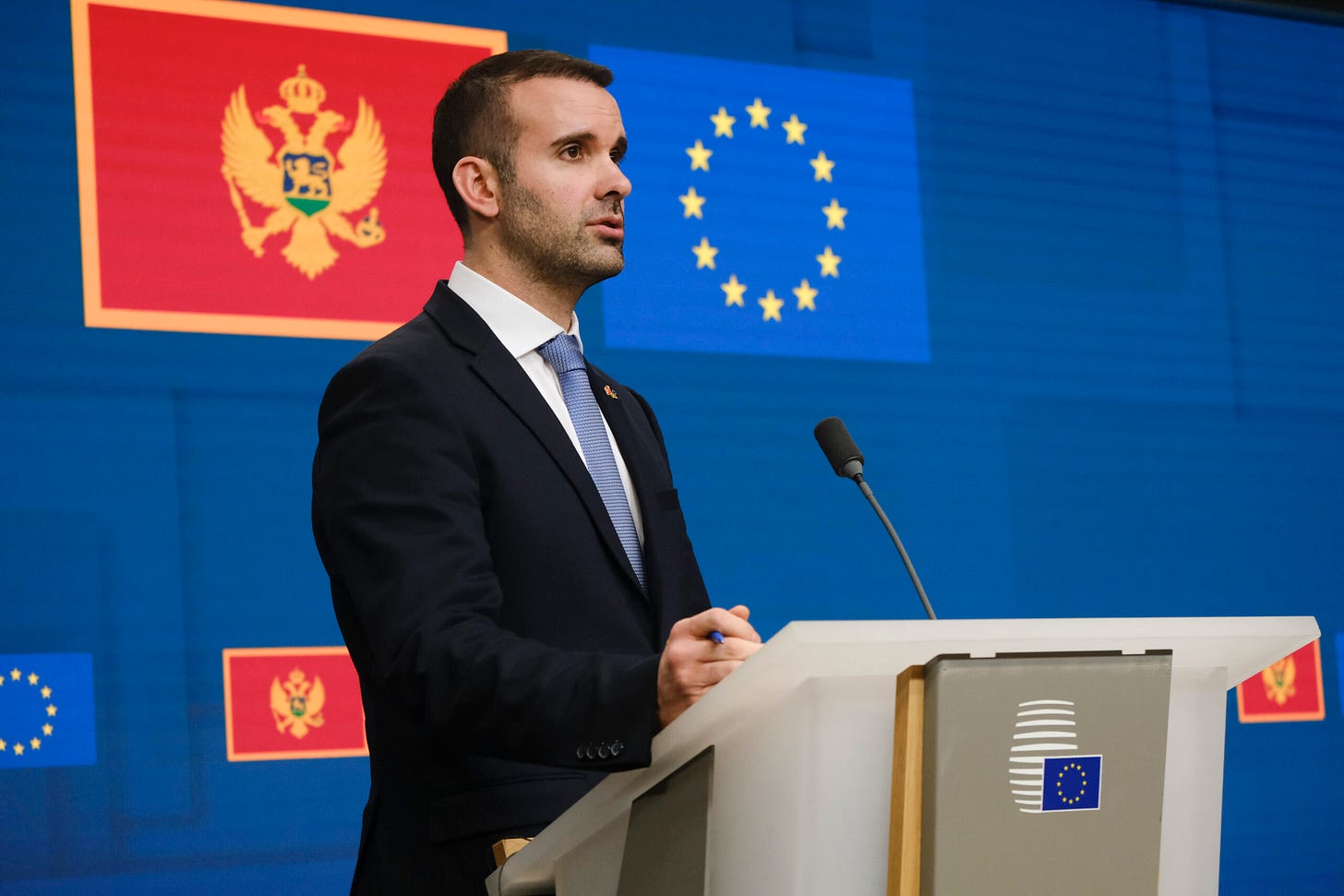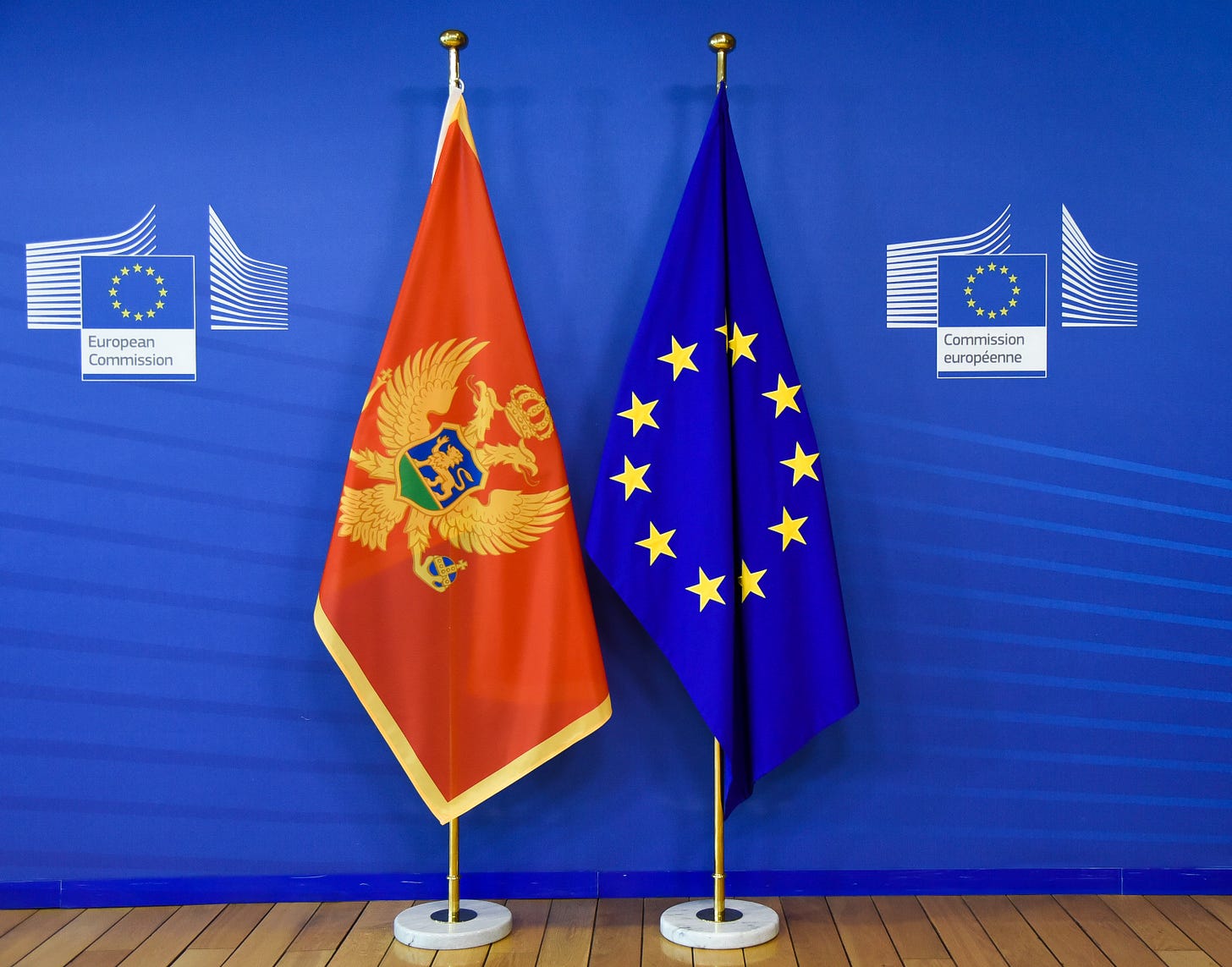S4E14. "The 28th EU Member State by 2028"
In an exclusive interview, the Prime Minister of Montenegro, Milojko Spajić, discusses future EU membership, latest NATO investments and the cessation of Chinese interference in the national economy
Dear reader,
welcome back to BarBalkans, the newsletter with blurred boundaries.
This is a moment of great importance for this project. For the first time, BarBalkans meets a leader of a Balkan country face to face.
More precisely, with the Prime Minister of Montenegro, Milojko Spajić.
On the occasion of the inauguration of the ‘Enlargement Candidate Members’ initiative by the European Economic and Social Committee (EESC) in Brussels, the Montenegrin Prime Minister gave an exclusive interview to BarBalkans on the hottest topics for the country.
Accession of Montenegro to the European Union, investment in national defense to meet NATO standards, managing the relationship with China after years of financial risk.
Spajić’ pro-European government - in office since November 2023 - wants to make a tangible difference in Montenegro’s future. With a measurable goal on the political agenda: becoming the 28th EU Member State by 2028.
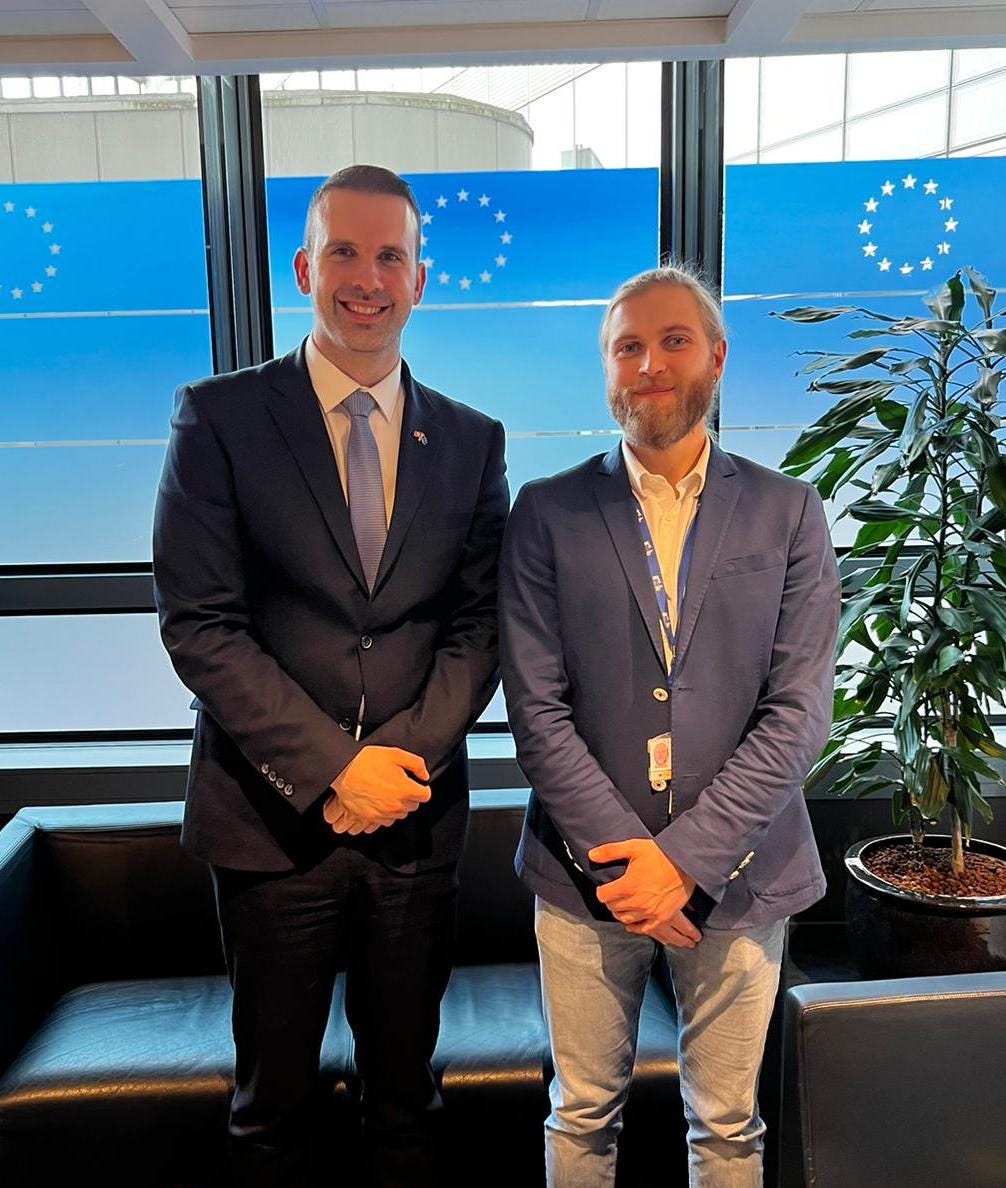
The next European Union member
It has been more than 11 years since Montenegro began the EU accession negotiations, more than 13 years since it was granted the candidate country status, and almost 16 since the formal membership application. The 2023 Enlargement Package published by the European Commission confirms that Montenegro is the most advanced country on the EU accession path.
The perspective of joining the European Union - as elusive as within reach - is not in question. On the contrary, it is considered imminent: ‘The 28th Member State by 2028’ slogan has become a sort of mantra in national institutions led by the political organization Europe Now!
«We will be ready even earlier than 2028, but we do understand that the EU enlargement is a two way process», Spajić makes it clear at the beginning of the conversation with BarBalkans. He is not only the Prime Minister of Montenegro (since 1st November 2023), but also the founder of Europe Now! along with President Jakov Milatović (in office since 20 May 2023).
«We will do our utmost to conclude the accession negotiations in 2026 and allow until 2028 for all Member States to ratify the Accession Treaty». This goal is based on factual considerations: «Since the EU already had 28 members, there is no need for prior internal revision of EU Treaties before our joining the club».
In other words, it is only since ‘Brexit’ in 2020 - when the United Kingdom withdrew from the European Union - that the EU counts 27 members. All this considered, Montenegro would simply take UK’s former seat, while the revision of the EU Treaties (to be prepared for a Union of 32, 35 or 37 members) would continue in parallel and would not delay Montenegro accession.
A first practical result would come very soon, with «Montenegrin politicians competing in the 2029 European Parliament elections», Prime Minister Spajić hopes: «It would be historical».
Read also: S4E9. This is a tipping point
The basis for this short-term perspective lies in «the highest relationship in history» with the European Union and the other countries in the Western Balkans, although «we need to improve even further».
Regarding investments, Spajić underlines that «we invite European companies, businesses and institutions to rebuild infrastructure». Moreover, «we also want to have even more trade between Montenegro and the European Union, and even more businesses opening in Montenegro, and vice versa».
All the other European countries can take advantage of a «big opportunity« not only in Montenegro but throughout the Western Balkans, as «they are a low-hanging fruit». For example, «our citizens love Italy, they look at it as a role-model in terms of society and EU membership». This is why «we want more Italian businesses in Montenegro, as well as from other EU countries».
Read also: S3E1. A travel diary
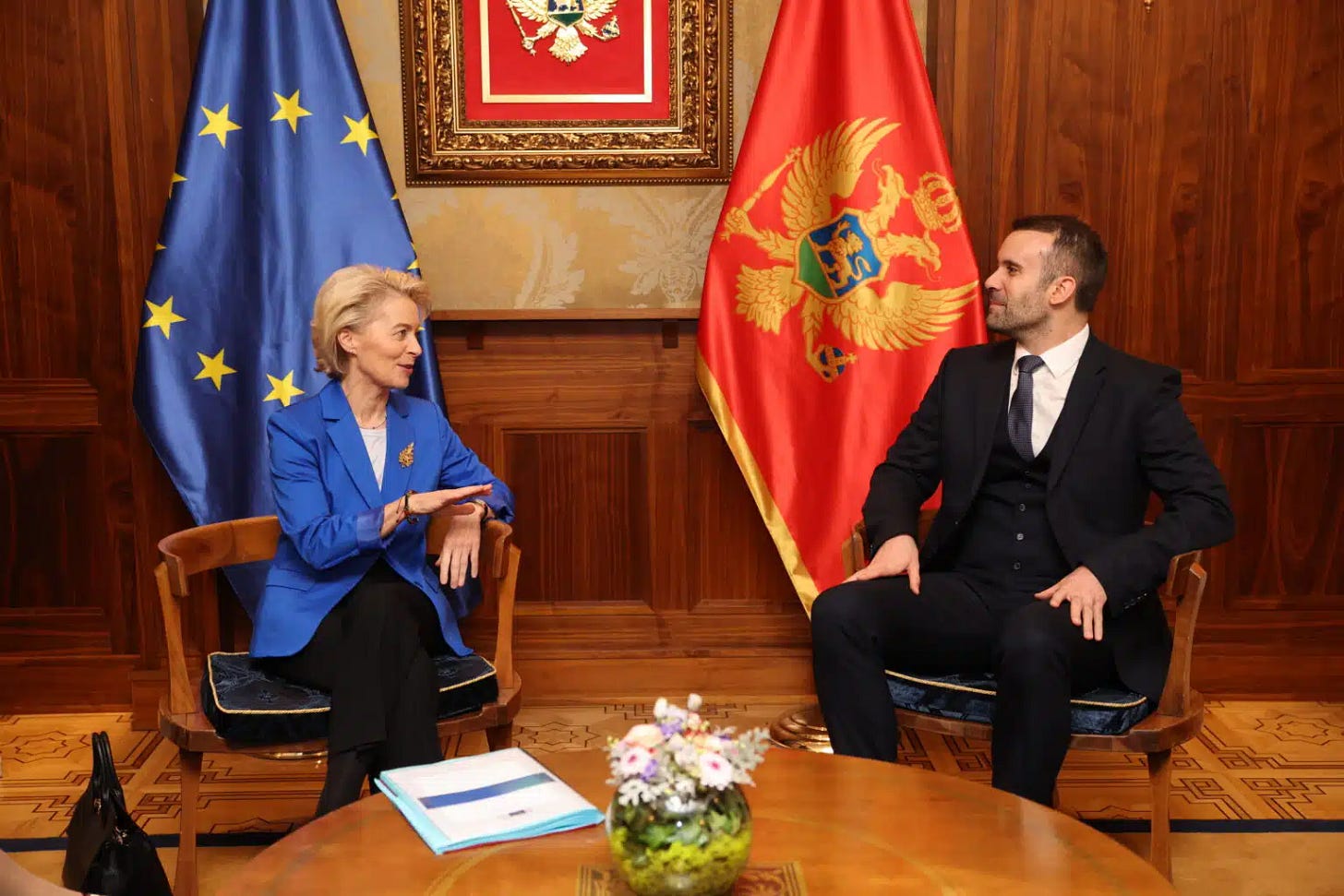
A relentless ally
Together with the European Union membership, the Montenegrin authorities’ efforts have also been focusing on the North Atlantic Treaty Organization (NATO) since joining the military alliance in 2017.
Following threats from Russia of “retaliatory measures on a reciprocal basis in the light of the hostile course chosen by the Montenegrin authorities” when joining NATO, there is no doubt that «Montenegro wants to be a credible NATO partner to all the allies».
This statement can be measured. «The government took office on 1st November 2023, we did not have much time: the previous budget draft said that the expenditure for NATO purposes was 1.8% of the GDP, but we managed in only a month’s time to increase it to 2.01%», Spajić reveals.
In 2024, Montenegro has become one of the 18 NATO members that have met the minimum threshold of 2% defense spending in relation to GDP, as anticipated by the Secretary General of the North Atlantic Alliance, Jens Stoltenberg. «This shows how much we are committed», the Montenegrin Prime Minister clearly states.
Read also: S4E4. Yugeurope
This is also how the Montenegrin Prime Minister interprets statements made by former U.S. President and likely Republican candidate in the 2024 elections, Donald Trump, regarding not defending allies who do not spend enough on defense from a possible Russian aggression.
«I would risk joining U.S. political campaign, if I comment on this statement», Spajić carefully chooses the words, clarifying that he wants to understand it «as a crucial message from all the U.S., not only from Trump but also from Biden». That «they want to see more active contribution from all NATO partners».
In Podgorica, «we have heard that message» and the alignment to the 2% threshold shows it. While threats from Moscow have not disappeared: «After the Russian aggression against Ukraine, we see how important security is, not only theoretically but really in a practical way», Spajić strongly emphasizes. Furthermore, he recalls that «it is unimaginable that a NATO member would be overrun and conquered by a foreign power, the way Russia did with Ukraine».
Read also: S4E13. Gastronationalism tastes like nothing
Far from China
The years when Podgorica was a major concern for the EU due to exposure to financial risks from the Chinese presence in the country seem to be long gone.
In 2021, Montenegro’s debt with China amounted to 809 million euros - about 1,300 euros per citizen - because of a loan granted in 2014 for the A1 Bar-Boljare motorway construction through the ‘Belt and Road Initiative’.
The first section north of Podgorica is one of the most expensive in the world - about 20 million euros per kilometer, more than ten times the European average cost. Most of all, Montenegro risked falling into the Chinese debt trap. In case of default, Beijing would have the right to take possession of some parts of the national territory.
Over the past three years - as newly appointed Prime Minister Spajić confirms - «we inherited the loan with the China Investment Bank, we have hedged successfully and we have reduced exposure from 27% of the GDP to 7/8%», thanks also to the support of three Western banks. «Now, it is completely manageable and negligible, it is only one of the loans in our portfolio and it does not worry us very much».
Montenegrin authorities can now look to the future: «We want the financing of infrastructure to come almost exclusively from our allies in the region, in the European Union and in NATO, we are finally adjusting economy and geopolitics in the right way».
Read also: XLIX. The Chinese all-in in Montenegro
The new government’s goal is to put an end to financial instability and corruption, including high-level corruption. This posed another significant challenge for Montenegro’s path to European Union membership.
«In 2020, when I became Minister of Finance, almost 60% of tourism came from outside the European Union, the region and NATO countries, as well as the infrastructure was 100% financed by countries and entities outside this political space, and 90% of the investments came from the East as well». At the same time, «geopolitically we are a NATO member and want to become a EU Member State, we are 100% aligned with EU Common Foreign and Security Policy».
In other words, «we had a sort of bipolar situation, in which we were geopolitically aligned on one side, but economically we were completely secluded by the European continent, and we acted like a Central Asia nation», the new Montenegrin Prime Minister summarizes years of national foreign and economic policy.
«In four years – I was Minister of Finance at the beginning and now acting as Prime Minister – we have completely changed the economic trajectory of Montenegro», Spajić strongly claims.
Read also: XLVII. The land of comics
Pit stop. Sittin’ at the BarBalkans
We have reached the end of this piece of road.
Even a Prime Minister can have - surprisingly or not - a suggestion at our bar, the BarBalkans. «Amaro Montenegro!», Spajić answers without hesitation.
The Balkan country has a special relationship with the herbal liquor first produced by Stanislao Cobianchi in Bologna in 1885.
Originally called Elisir Lungavita (‘Elixir of Longevity’), it was renamed ‘Amaro Montenegro’ by Cobianchi himself in 1896, when Princess Elena of Montenegro married the future King Victor Emmanuel III of Italy.
Jelena Petrović Njegoš (of the Montenegrin Royal House of Petrović-Njegoš) was born in Cetinje in 1873 and became Queen of Italy from 1900 until the abolition of the monarchy in 1946. Elena of Montenegro was the last Queen of Italy and, in fact, she is still remembered every time anyone orders Amaro Montenegro.
This amaro is the result of a secret recipe, which has remained unchanged since 1885. The 40 botanicals that comprise Amaro Montenegro come from all over the world and they undergo three different forms of extraction: boiling, maceration and distillation.
Twelve mother essences are taken and synthesized into six tasting notes, with the addition of one final element - called ‘Premio’ - from the micro-distillation of five other botanicals. The resulting mixture is then combined with alcohol, water and sugar, before being bottled. The whole process takes a total of six months.
Let’s continue BarBalkans journey. We will meet again in two weeks, for the 15th stop of this season.
A big hug and have a good journey!
If you have a proposal for a Balkan-themed article, interview or report, please send it to redazione@barbalcani.eu. External original contributions will be published in the Open Bar section.
The support of readers who every day give strength to this project - reading and sharing our articles - is also essential to keep BarBalkans newsletter free for everyone.
Behind every original product comes an investment of time, energy and dedication. With your support BarBalkans will be able to develop new ideas, interviews and collaborations.
Every second Wednesday of the month you will receive a monthly article-podcast on the Yugoslav Wars, to find out what was happening in the Balkans - right in that month - 30 years ago.
You can listen to the preview of The Yugoslav Wars every month on Spreaker and Spotify.
If you no longer want to receive all BarBalkans newsletters (the biweekly one in English and Italian, Open Bar external contributions, the monthly podcast The Yugoslav Wars for subscribers), you can manage your preferences through Account settings.
There is no need to unsubscribe from all the newsletters, if you think you are receiving too many emails from BarBalkans. Just select the products you prefer!





